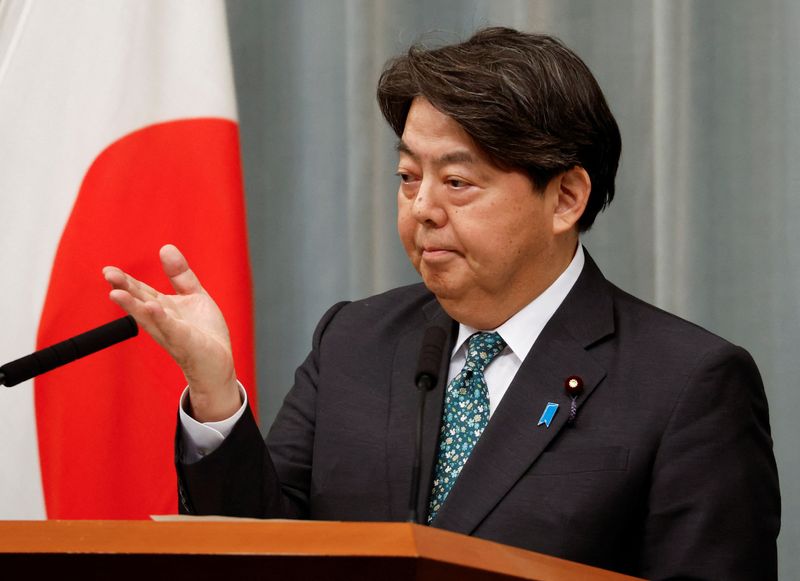By Kentaro Sugiyama and Makiko Yamazaki
TOKYO (Reuters) – Japanese Cabinet Secretary Yoshimasa Hayashi said on Tuesday authorities will respond appropriately to excessive currency volatility, in a fresh warning as the yen weakens to a key level of 160 per dollar.
Hayashi, the top government spokesman, told reporters that excessive foreign currency volatility is undesirable as it negatively affects business and household demand.
“We are closely monitoring currency movements and will respond appropriately to excessive volatility,” he said.
His comments follow a steady drumbeat of warnings from officials against wild swings in the currency in recent days, amid increased political focus on the hit to the economy from the weak yen.
Earlier on Tuesday, Finance Minister Shunichi Suzuki told broadcaster TBS that exchange rates should be stable and reflect economic fundamentals.
“We would respond appropriately to excessive currency movements,” he said, a position he reiterated in Seoul on Tuesday after attending a bilateral meeting with his South Korean counterpart.
The battered yen languished around 160 per dollar on Tuesday, close to a 34-year low of 160.245 that prompted a 9.79 trillion yen ($61.33 billion) currency intervention from Tokyo in late April and early May.
Although government officials have declined to comment on whether the current market moves are excessive, traders are on high alert for any intervention from authorities.
The yen has been under pressure since the Bank of Japan disappointed investors this month by not scaling back its massive bond purchases as some expected.
In a separate press conference on Tuesday, the chairman of Keidanren’s powerful business lobby, Masakazu Tokura, said currency interventions could be effective to some extent.

“The latest interventions (in April and May) reflected the government’s decision to prevent the yen from falling below 160 per dollar,” he said.
Tokura also said interest rate differentials between the U.S. and Japan are likely to eventually narrow as subdued inflation in Japan would lead to a policy rate hike and slowing inflation in the United States would result in a rate cut. “In that sense, I believe the difference is now at its peak,” he added.


